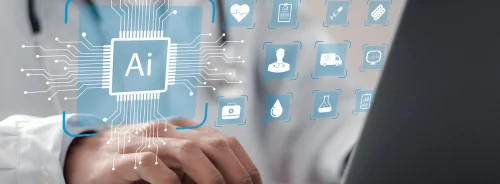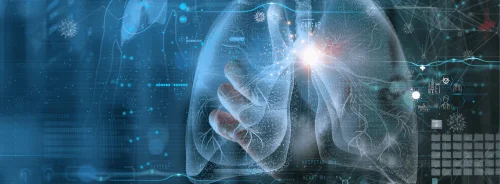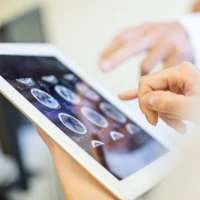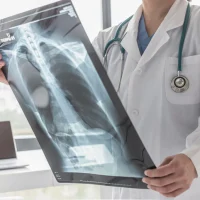A new artificial intelligence (AI) tool, trained on more than a million screening mammography images, can identify breast cancer with up to 90% accuracy when combined with analysis by radiologists.
The AI model was developed by New York University researchers who pointed out that their AI application is intended to optimise the work of radiologists, not replace them. The goal is to enhance diagnosis and hopefully reduce the number of biopsies.
In their study, NYU researchers evaluated the performance of the AI neural network in adding value to the diagnoses made by a group of 14 radiologists as they reviewed 720 mammogram images.
“Our study found that AI identified cancer-related patterns in the data that radiologists could not, and vice versa,” said senior study author Krzysztof Geras, assistant professor in the Department of Radiology at NYU Langone. Specifically, AI was able to detect pixel-level changes in tissue invisible to the human eye and this ability was complemented by radiologists' reasoning to reach conclusions missed by the system.
The study, published in the journal IEEE Transactions on Medical Imaging, noted that in 2014 roughly 39 million screening and diagnostic mammography exams were performed in the United States. Women with abnormal results were usually advised to undergo a biopsy for further work-up, a procedure that can be painful, in addition to being costly.
You my also like: AI Accuracy Matches Clinicians'
With the use of a large training set with breast-level and pixel-level labels, the NYU-built AI model can accurately classify breast cancer screening exams. The researchers attributed this success to the significant amount of computation employed in the patch-level model, which was applied to the input images to form heat maps as additional input channels to a breast-level model.
In addition, a thorough analysis of the AI model’s performance on different subpopulations of the screening population had also been conducted. Moving forward, the NYU team plans to improve the model's accuracy by training the AI program on more data, perhaps even identifying changes in breast tissue that are not yet cancerous but have the potential to be.
“The transition to AI support in diagnostic radiology should proceed like the adoption of self-driving cars – slowly and carefully, building trust, and improving systems along the way with a focus on safety,” says first author Nan Wu, a doctoral candidate at the NYU Center for Data Science.
Source: New York University
Reference: Wu N et al. (2019) Deep Neural Networks Improve Radiologists’ Performance in Breast Cancer Screening. IEEE Trans Med Imaging. Published on 07 October 2019. DOI: 10.1109/TMI.2019.2945514
Image: iStock










